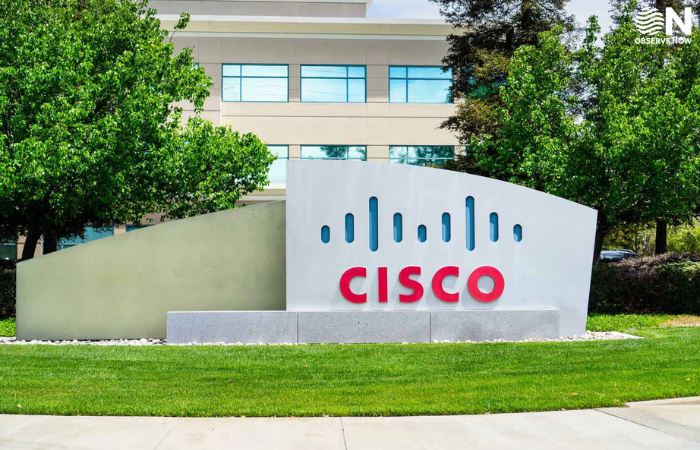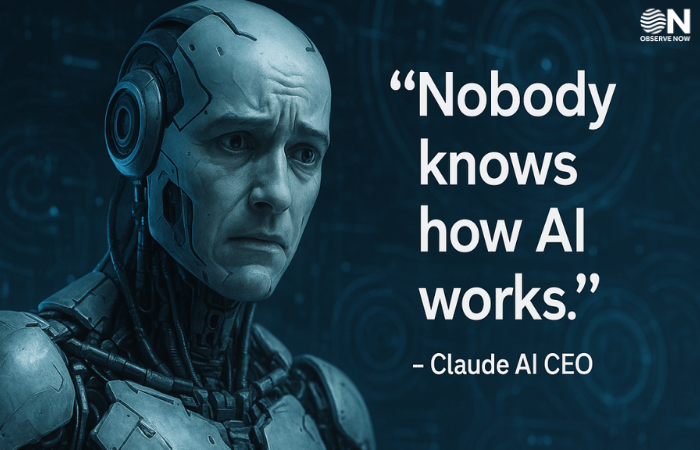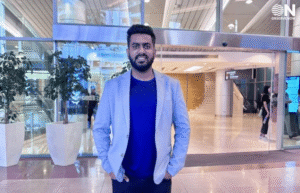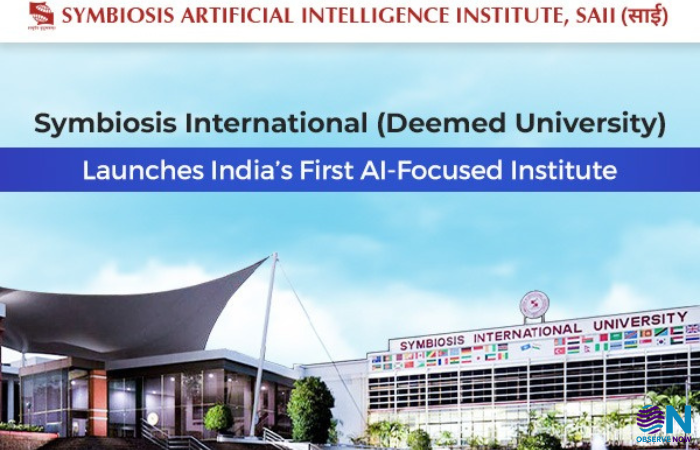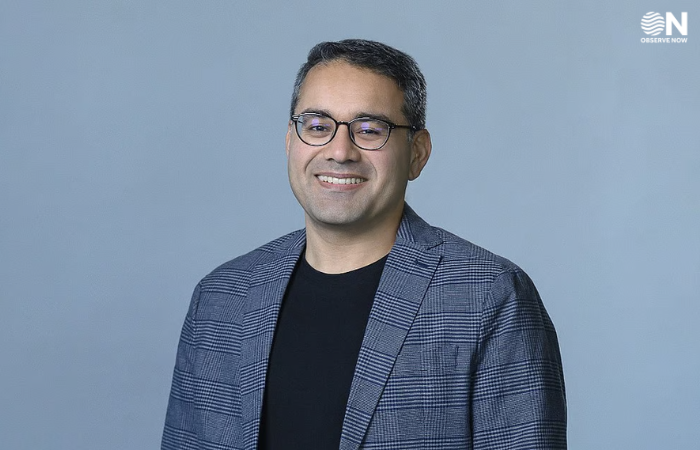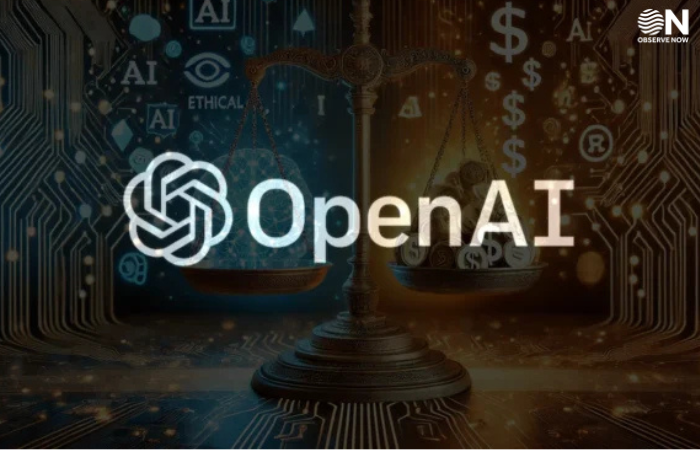Symbiosis Artificial Intelligence Institute (SAII) pioneers AI-driven education and research to shape the future of intelligent learning. It offers state-of-the-art facilities, innovative programmes, and industry partnerships to prepare students for the AI era.
Symbiosis International (Deemed University) announced the launch of the Symbiosis Artificial Intelligence Institute, SAII, a visionary initiative billed as India’s first dedicated AI-focused institute. SAII is poised to shape the future of intelligent learning by integrating cutting-edge artificial intelligence into academic programmes and research, preparing students to lead in a technology-driven world.
The institute will offer specialised programmes in AI and related fields, ranging from machine learning and data science to robotics and neural networks, ensuring that students gain deep expertise in the technologies redefining our future.
The programmes offered under the institute are:
B.Sc. (Artificial Intelligence) Honours/Honours with Research
Emphasising application-oriented learning, the curriculum spans key sectors including Health Sciences, Agriculture, Cybersecurity, Data Science, and Sports Sciences, enabling students to address real-world challenges through AI. The programme prioritises ethical and responsible AI, ensuring graduates understand its societal impact. Students can additionally specialise in areas such as Financial Technologies, Marketing Technologies, Global Supply Chain, Human Resource Technologies, and Media and Creative Industries, each tailored to build industry-specific AI expertise.
B.B.A. (Artificial Intelligence) Honours/Honours with Research
Through a practical, industry-oriented curriculum, students learn to leverage AI tools to solve business challenges, enhance operational efficiency, and drive data-informed decision-making. Specialisations in Financial Technologies, Marketing Technologies, Global Supply Chain, Human Resource Technologies, and Media and Creative Industries allow for targeted expertise, while minors in Health Sciences, Sports Sciences, Agriculture, Data Science, and Cybersecurity offer additional domain insights.
A distinctive feature of the curriculum is the ability to combine majors and minors across programmes. A B.Sc. student majoring in Health‑Sciences AI can, for instance, choose a FinTech minor from the B.B.A. stream, while a B.B.A. student specialising in Marketing Technology can add a Data-Science minor drawn from the B.Sc. offerings. This mix-and-match ecosystem ensures that learners develop both technical depth and interdisciplinary breadth.
Structured as a “three-year core plus optional fourth‑year Honours or Honours‑with‑Research” model, each programme enables seamless progression from foundational principles to advanced specialisations. Throughout their studies, students will work in SAII’s state‑of‑the‑art AI super‑lab equipped with high‑performance GPUs, an extended‑reality studio, and a data‑visualisation arena.
Getting Future-ready with SAII
Graduates from Symbiosis Artificial Intelligence Institute, SAII, are equipped for diverse roles, including AI business analyst, Digital transformation consultant, Date-driven marketing specialist, Product manager (AI-enabled platforms), Operations and Process automation Manager, Tech Strategy analyst, Business Intelligence analyst & Innovation and technology manager positions, supported by interdisciplinary learning, industry projects, and mentorship that facilitate innovation and prepare them for global careers or further study in the AI ecosystem.
“Symbiosis has always believed in staying ahead of the curve in education,” said Dr. S.B. Mujumdar, Chancellor and Founder of Symbiosis International (Deemed University). “The launch of SAII is a testament to our commitment to prepare students for the future. By focusing on AI, we are not only keeping pace with global innovation but also allowing our students to become innovators and problem-solvers who will shape tomorrow’s world responsibly.”
Symbiosis Artificial Intelligence Institute stands apart through several key features:
- Exclusive Focus on AI: SAII is dedicated solely to AI education, offering deep specialisation from basics to advanced applications, making it a distinctive AI hub in India.
- Innovative Programmes & Curriculum: Programmes are designed with industry input and cover key areas like machine learning, NLP, computer vision, and AI ethics, keeping content cutting-edge and market-relevant.
- State-of-the-Art Infrastructure: Students access modern AI labs, high-performance computing, and real-world tools, enabling hands-on learning with advanced AI technologies.
- Industry & Global Collaboration: Partnerships with global tech firms and universities offer internships, live projects, expert sessions, and research, ensuring strong industry exposure.
- Interdisciplinary & Ethical Approach: SAII integrates AI with sectors like healthcare, finance, and sustainability, emphasising ethical use and social impact in every programme.
Echoing the institute’s mission, Dr. Ketan Kotecha, The Dean and Director of SAII, highlighted the practical, student-centric approach of the new institute. “At SAII, our curriculum blends strong theoretical fundamentals with real-world application from day one,” he said. “Students will work on actual industry and research projects, leverage internships with our partner companies, and engage in innovative research that pushes the boundaries of what’s possible. We are committed to nurturing graduates who can not only adapt to the AI revolution but also drive it forward with creativity and responsibility.”
Eligibility and Admission
The programme welcomes applicants from every academic stream—Science, Commerce, and Arts; provided they have passed Class XII with a minimum aggregate of 50 percent, or 45 percent for candidates from SC/ST categories. It is conducted as a non‑residential course.
Admissions for the first cohort are now live on the institute’s website. Prospective candidates must register online for either programme by 30th May 2025. Names of eligible candidates shortlisted for personal interaction will be declared on 4th June 2025, followed by booking slots for the online PI for B.Sc. AI/B.B.A. AI between 5th and 8th June 2025, and the final merit list will be published on 19th June 2025.






